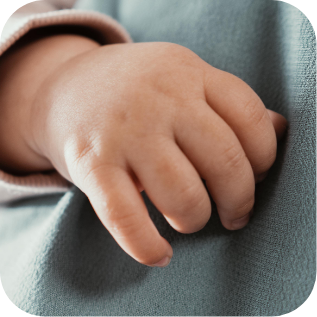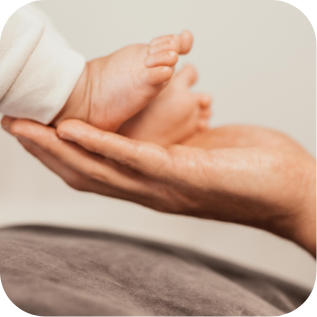Insemination (IUI)
at MVZ Kinderwunsch
If it is not possible to get pregnant by conventional means, a doctor can perform a semen transfer (insemination). This involves a simple medical procedure to insert the man’s sperm into the woman’s uterus. This facilitates or eliminates the travel of the sperm from the vagina up through the cervix.







